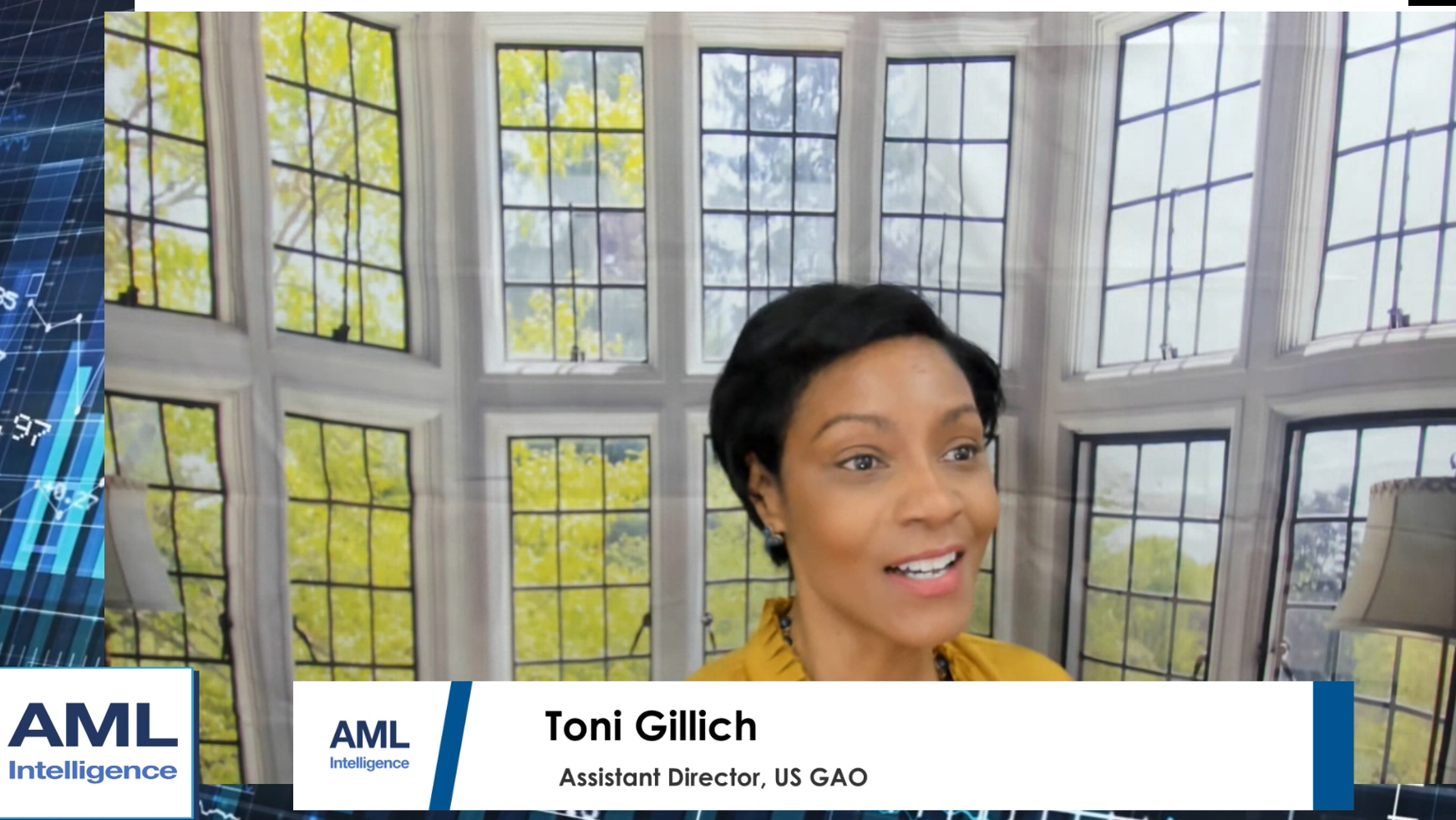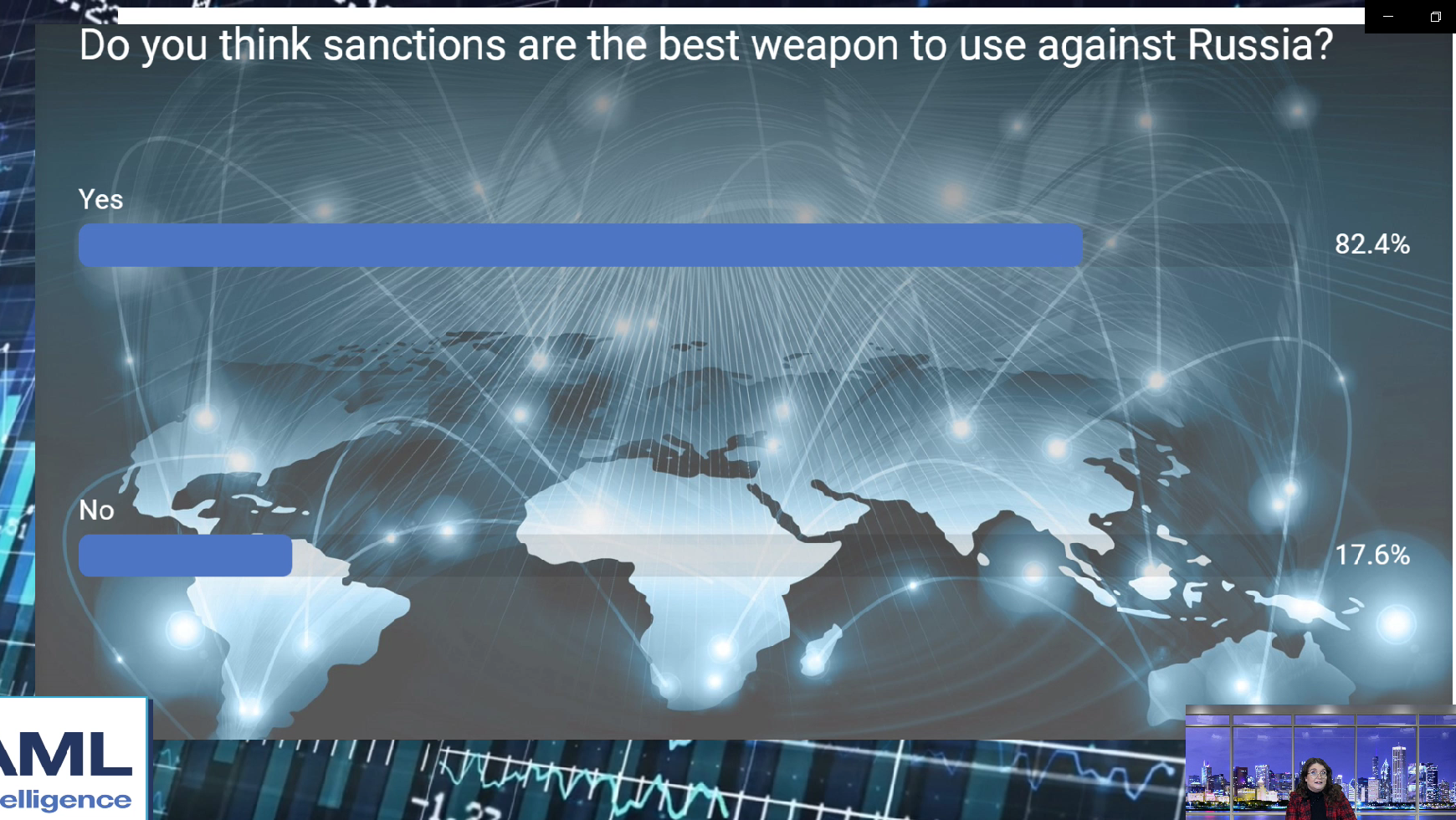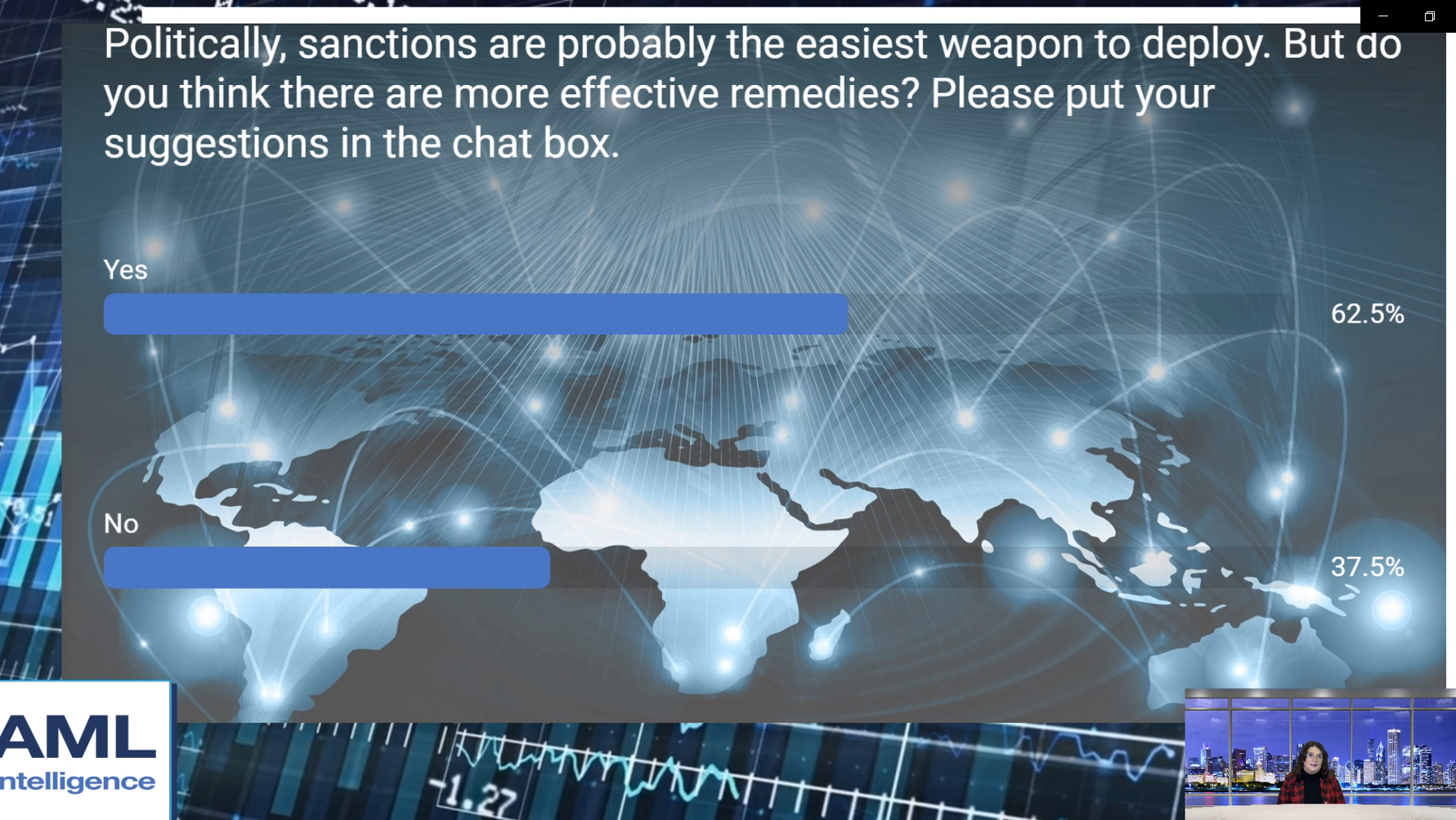By ELIZABETH HEARST and ALISHA HOULIHAN
Some of the world’s leading voices in fighting FinCrime were on hand to discuss new challenges posed to the financial sector, information exchange and gender equality at this year’s #WomenInFinCrime Summit.
The conference, held in celebration of International Women’s Day #IWD2022, brought together industry leaders from the AFC, AML and Compliance space, as well as legislators and policy makers from across Europe, the US and Asia.
The virtual Summit was attended by more than 1,000 delegates, with many tuning in from the USA, UK, Europe, Hong Kong and Australia.
If you missed the Summit, you can access the ON DEMAND version here
Helen McEntee, Minister for Justice, Ireland
Officially opening the Summit was Ireland’s Minister for Justice, Helen McEntee, who emphasised the importance of the #WomenInFinCrime Summit as a mentorship platform.
Minister McEntee also spoke out against increasing violence against women in Europe and gave an empassioned speech that women should be safe, amid rising violence levels.

AnnaLou Tirol, FinCEN Deputy Director
Delivering a Keynote Address to the Summit was AnnaLou Tirol, Deputy Director at FinCEN (above with moderator Jackie King) who spoke of the United States’ efforts in anti-money laundering. She described the 2021 AML Act as a “landmark” piece of legislation that would “bolster the United States’ national security”.
“The AML Act has endowed us with a leading role in strengthening our AML/CFT architecture,” said Ms. Tirol. Responsibilities laid out in this Act include the establishment of national AML/CFT priorities, as well as enhanced whistleblower programmes and a pilot programme allowing financial institutions to share SARs with foreign branches, subsidiaries and affiliates.
Ms Tirol revealed that “during any given year, FinCEN is 50% women”, with the body boasting “women leaders, and in some cases all female management teams” through the bureau.
“That means that women oversee the breadth of our regulatory work, they maintain our information technology and drive the building of new tools and systems, and they provide us with critical legal contours and advice,” said Ms Tirol.
She emphasised the theme of #BreakTheBias for International Women’s Day, and challenged delegates to take a “meaningful step towards accelerating women’s equality” going forward.
Hennie Verbeek-Kusters, Egmont Chair of FIUs
Chair of the Egmont Group of FIUs, Hennie Verbeek Kusters spoke candidly about ‘imposter syndrome’ experienced by many women, and revealed she was uncertain about putting herself forward for her role, despite “gentle pushing” from colleagues that she was more than qualified.
She stressed the importance of female mentorship, and described the Egmont Group’s mentoring programme – ECOFEL – which offers opportunities to improve “communication, decision-making and problem-solving competencies” for mentees.
“Mentorship is a two-way process,” said Mrs Verbeek Kusters who urged women to “share experiences to dismantle stereotypes”, which would “pave the way for future women.”
The Egmont Chair, also serves as Chair of FIU in the Netherlands, believes that the Dutch initiative of TMNL (Transaction Monitoring Netherlands) is the future for fighting financial crime. The Public Private Partnership (PPP) is first undergoing legal and public scrutiny before its official implementation.
Daniëlle Goudriaan, Prosecutor, EPPO
Speaking from the freshly launched European Public Prosecutor’s Office, Daniëlle Goudriaan who gave a comprehensive overview of the work of the EPPO, which already has a number of major successes since it became operational in July 2021.
She also revealed that the EPPO boasts eight female prosecutors, as well as a female Chief Prosecutor in Laura Codruta Kovesi.

Raluca Pruna, Head of Unit, DG FISMA, European Commission
Following last year’s hotly anticipated EU AML Action Plan launched by the European Commission, Raluca Pruna, Head of Unit for DG FISMA at the Commission spoke about the EU’s anti-money laundering efforts.
“The problem is that an estimated 1% of the European Union’s GDP is connected, unfortunately, to suspected financial activity, and the scale of this problem cannot be underestimated as it has an impact on the Union financial system, on the proper functioning of the internal market, and on the security of EU citizens,” said Ms Pruna.
She revealed the Commission’s Action Plan will “have teeth” to go after those committing financial crime, with the number of directly supervised entities expected to increase when the EU’s AML Authority is fully operational in 2026.
“AMLA is a new institution that will start from scratch… and it has to concentrate its efforts on the riskiest institutions at Union level,” added Ms Pruna.
Ilze Znotina, Director, FIU Latvia
Director at FIU Latvia, Ilze Znotina spoke about the importance of intelligence and money laundering threats in this digital age. “How do we protect our countries, societies and everyone in today’s increasingly borderless world?” she asked.
“A chain is only as strong as its weakest link, and therefore it is important that all links in the chain are sustainable and secure,” said Ms Znotina. With this in mind, she urged each country to build a “strong and sustainable” anti-money laundering regime.
Charmian Simmons, FinCrime and Compliance Expert, BAE Systems Digital Intelligence
Charmian Simmons, FinCrime and Compliance Expert at BAE Systems Digital Intelligence delivered her address on ‘3 in 3, and the power of SHE’, emphasising the importance of gender equality in the financial sector.
She called for those in the financial sector to #BreaktheBias, in line with this year’s theme for International Women’s Day, adding that we need to learn “how to support women” in the sector “to be seen and be heard.”
Rekha Modi Gomes, Global Head Risk Operations, HSBC
HSBC Global Head of Risk Operations, Rekha Modi Gomes spoke about the changed financial world in the post-COVID era, with more customers moving online and businesses forced online.
She revealed HSBC had invested $6BN in technology in 2021, with almost half of retail customers now active on mobile. Corporate customers also carried out 9 Million payments through digital channels, marking an increase of 58% on the previous year.
“We need to be more targeted in the identification of Financial crime risk by adopting new technologies and advanced analytics, so that we may let legitimate customers get on with their lives in peace, whilst staying alert to real threats on the financial crime front,” said Ms Gomes.

Toni Gillich, Assistant Director, US GAO
Toni Gillich, Assistant Director at the US Government Accountability Office discussed trade based money laundering, which she says is “now used by criminal organisations in a number of countries.”
Suneeta Shetty, Global Head of Transaction Monitoring Operations, HSBC
Suneeta Shetty, Global Head of Transaction Monitoring Operations at HSBC gavea full overview of the comprehensive efforts being made by HSBC to tackle human trafficking risks, modern slavery and fighting financial crime.
She stressed that businesses can be exposed to human trafficking if they are “very labour intensive” including mining, manufacturing and packaging. She added that “that’s why enhanced vetting of our corporate clients and their suppliers and distributors… is now critical.”
Sujata Dasgupta, Global Head of Financial Crimes Compliance at Tata Consultancy Services
Sujata Dasgupta, Global Head of Financial Crimes Compliance at Tata Consultancy Services delivered her address on the efforts of the financial sector to tackle FinCrime in the post-COVID 19 era.
She spoke about the rise of scams and fraud during the Pandemic, and the lessons learnt by the industry in preparation for disaster and crisis situations.
Professor Moyara Ruehsen, Professor of FinCrime, Middlebury Institute
Professor Moyara Ruehsen echoed this statement, and spoke about the impact of COVID-19 and the rise of fraud. “The fraudsters haven’t gone away, they just grew emboldened. So many people are still working from home and spending a lot more time online, which provides a target rich environment for fraudsters,” said Professor Ruehsen.
Ruth Hutchinson, Head of Learning, ICA
Ruth Hutchinson, Head of Learning at the International Compliance Association spoke about the importance of education in fighting financial crime, and recruitment gaps in the Compliance sector.
Delegates were also asked to vote in a number of polls, the first of which asked attendees’ if they thought sanctions were the best weapon to deploy against Russia. Of this 82.4% of delegates voted in favour, with 17.6% voting against.

The second poll of the day asked delegates whether there were more effective remedies than sanctions, with 62.5% voting in favour.

Delegates were also asked to share their thoughts on the greatest obstacles they find in their job, with the vast majority reporting delays in information sharing between other banks/FIUs.
Lack of appreciation of the work of Compliance professionals and lack of promotional opportunities were also cited by delegates as major obstacles.

Share this on:
Follow us on:











